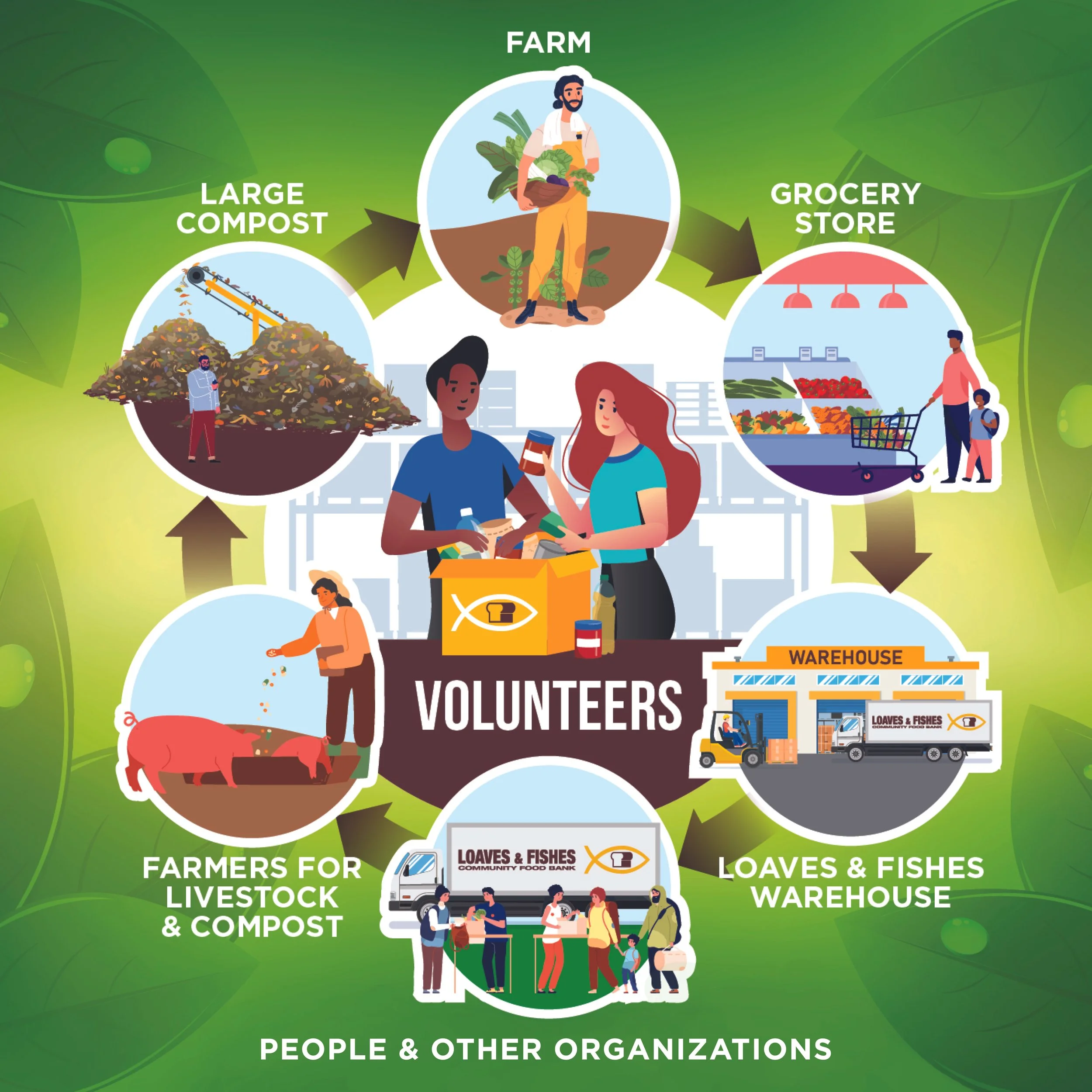Serving Vancouver Island
Loaves & Fishes serves over 15,000 people in 40 communities, including 15 Indigenous communities, across Vancouver Island—providing food free of charge.
As the Food Banks BC National Hub for Vancouver Island since 2016, we source food through local, regional, and national partnerships.
Our fleet of 5-ton trucks covers 10,000+ km each month to distribute food across the island. We do this in two ways:
Through free food markets in Nanaimo, Cedar, Port Hardy, Port McNeill, Woss, Sointula, and Port Alice—open to all, regardless of income or location.
By supplying food to over 100 Community Partners, including charities, schools, food banks, and Indigenous communities.
Our Mission
To recover and distribute food to those in need.
Our Values
Compassion, integrity, reliability, excellence, collaboration & results
Our Vision
Reliable food access for every community.
Food Recovery
Loaves & Fishes Food Recovery Program has transformed food distribution across Vancouver Island, proving surplus food doesn’t have to go to waste. Since 2012, we’ve grown from sourcing $800,000 worth of food annually to over $11 million in 2024. As the National Food Sharing System Distribution Hub, we’ve become a provincial leader, even assisting Food Banks BC in developing their Food Recovery Guide.
What is Food Recovery? It’s a program that collects surplus food—fruit, vegetables, meat, bread, dairy—and ensures it’s used rather than discarded. By accepting all food, we give retailers a cost-effective, socially responsible, and environmentally friendly way to handle unsold items.
Our Operations: We collect food from 38 recovery partners across the Island, including 19 grocery stores daily. Our fleet of refrigerated trucks runs 364 days a year, ensuring reliable food recovery. Clean donation bins support efficient collection, and even pet food is recovered when available.
Nothing Should Go to Waste: Volunteers sort food to ensure only the highest quality reaches those in need. Anything unsuitable goes to farmers, industrial composters, or, as a last resort, the landfill.





